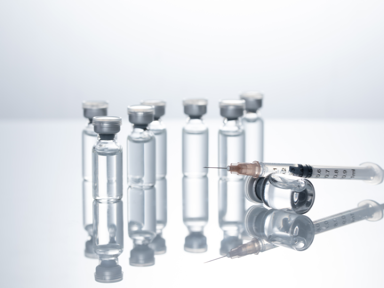pharmatimesJuly 29, 2021
Tag: AstraZeneca , COVID-19 Vaccine , Vaxzevria
AstraZeneca’s COVID-19 vaccine – Vaxzevria – did not increase the rate of rare blood clots with low platelets after the second dose, according to a new study.
The analysis – published in The Lancet – was conducted using AZ’s global safety database, which captures all spontaneously reported adverse events from the real-world use of its medicines and vaccines across the globe.
According to the data demonstrated the estimated rate of the rare blood clotting disorder, known as thrombosis with thrombocytopenia syndrome (TTS), following the second dose of the vaccine was 2.3 per million vaccinees, compared to the background rate in an unvaccinated population.
The study also found that the rate was higher after the first dose, with the rate of TTS being 8.1 per million vaccinees in this population.

However, the rate after the second dose is comparable to background rates observed in unvaccinated populations.
“Vaxzevria is effective against all severities of COVID-19 and it plays a critical role in combatting the pandemic,” said Mene Pangalos, executive vice president, BioPharmaceuticals R&D at AZ.
“Unless TTS was identified after the first dose, these results support the administration of the two-dose schedule of Vaxzevria, as indicated, to help provide protection against COVID-19 including against rising variants of concern,” he added.
AZ said that the results from its analysis of rare cases from the global safety database are in line with recent reports in the UK’s Medicines and Healthcare products Regulatory Agency (MHRA) Yellow Card Report, which shows low rates of TTS after the second Vaxzevria dose.


Contact Us
Tel: (+86) 400 610 1188
WhatsApp/Telegram/Wechat: +86 13621645194
Follow Us:




 Pharma Sources Insight January 2025
Pharma Sources Insight January 2025


